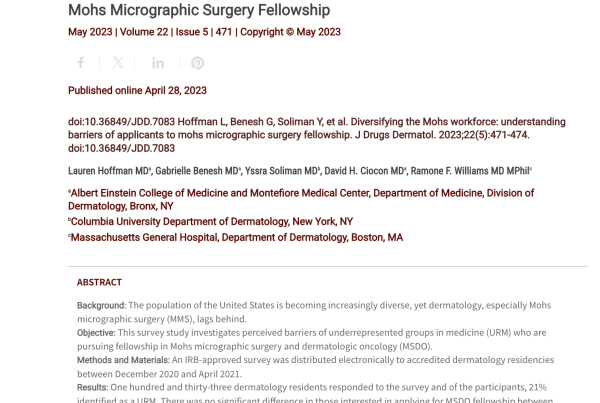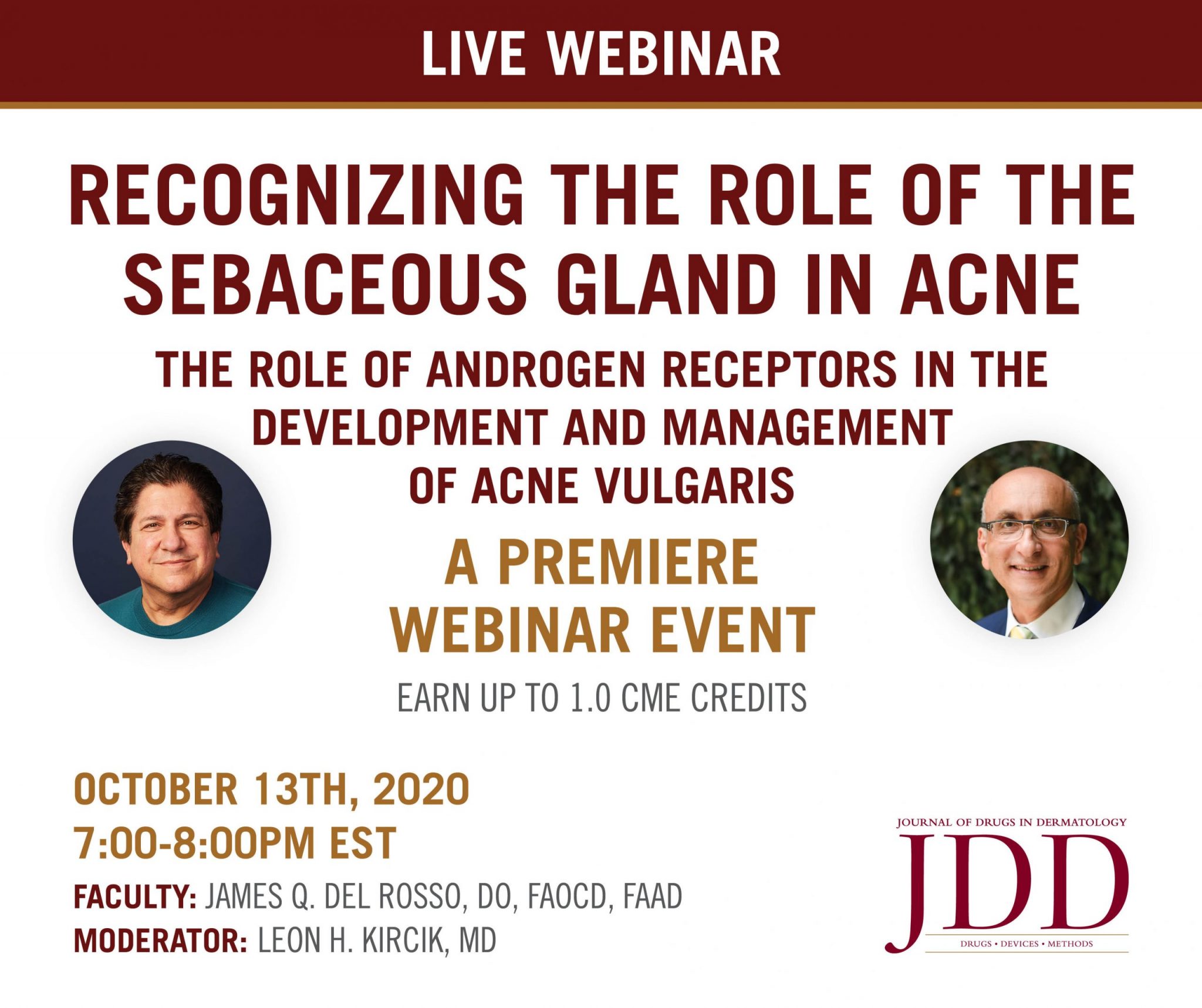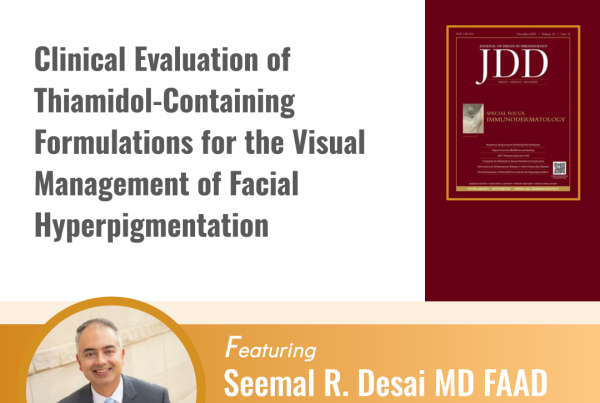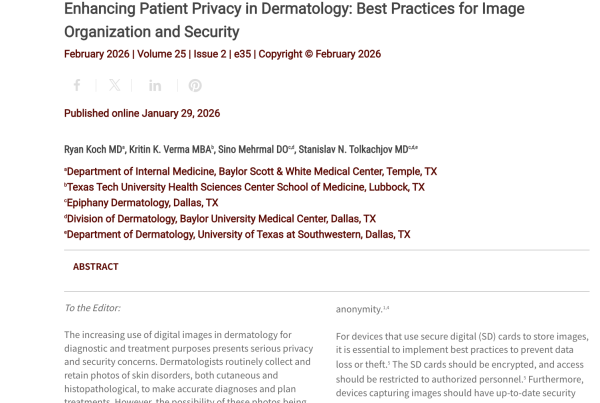Recognizing The Role of the Sebaceous Gland in Acne
The Role of Androgen Receptors in the Development and Management of Acne Vulgaris
Androgen and androgen receptor (AR) may play important roles in several skin related diseases including androgenetic alopecia and acne vulgaris and recent studies suggest AR and androgens play distinct roles in the skin pathogenesis, and AR seems to be a better target than androgens for the treatment of these skin diseases.
Tune in as Leon H. Kircik, MD and James Q. Del Rosso, DO, FAOCD, FAAD discuss the mechanisms by which androgen/AR regulate sebocyte activity in acne vulgaris, and how suppressing AR function by treating with antiandrogens alone, or in combination with antibiotics (i.e., to reduce bacterial infection) might be a potential therapeutic approach to treat acne more effectively.
The results of this open-label clinical study suggest that a topical cream containing retinol 0.5% in combination with niacinamide, resveratrol, and hexylresorcinol is efficacious and tolerable for skin brightening/anti-aging when used with a complementary skin care regimen including SPF 30 sun protection.
Faculty

Leon H. Kircik, MD
Clinical Professor of Dermatology
Indiana University School of Medicine
Mount Sinai Medical Center, New York, NY
Physicians Skin Care, PLLC
Louisville, KY

James Q. Del Rosso, DO, FAOCD, FAAD
Research Director & Principal Investigator
JDR Dermatology Research
Thomas Dermatology
Las Vegas, Nevada
You May Also Like










